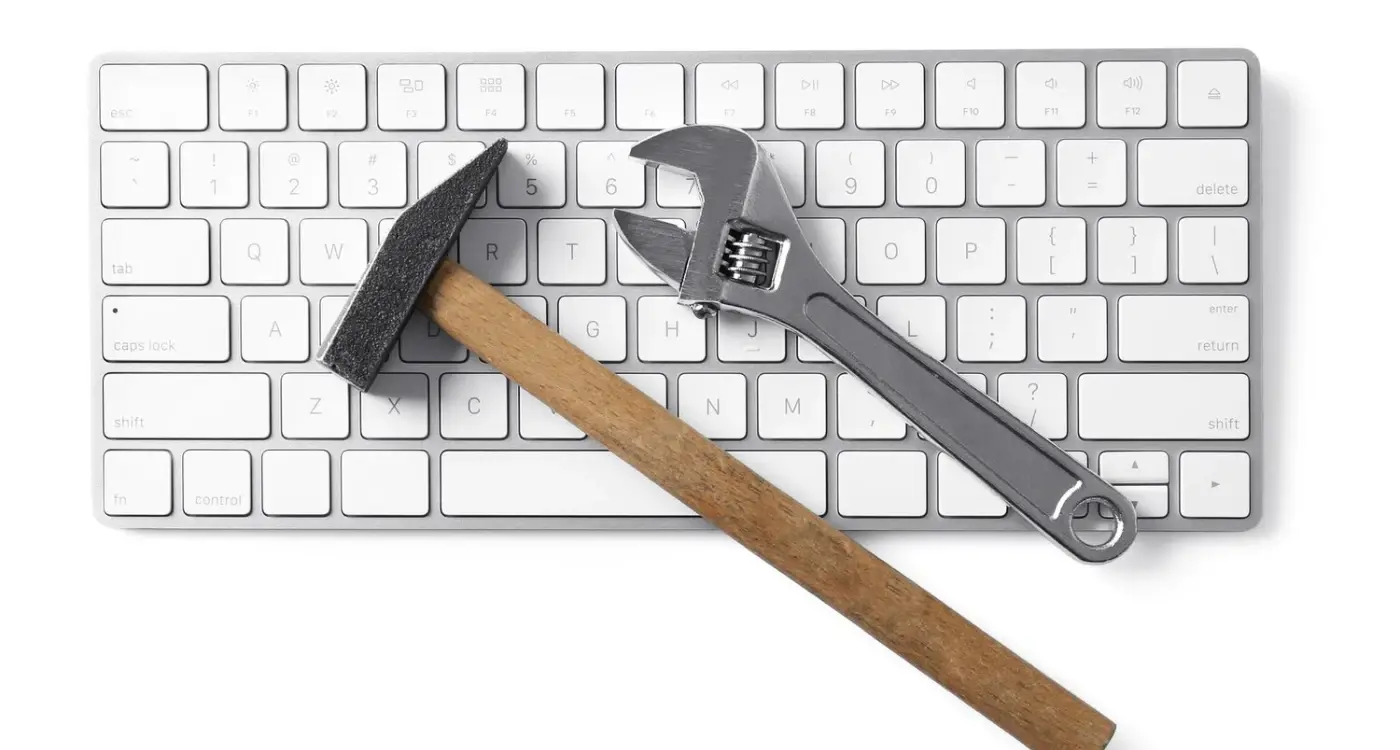What Questions Should I Ask Before Hiring An App Developer?
Over 80% of mobile app projects fail not because of technical issues, but because businesses chose the wrong development partner. That's a lot of wasted money, time, and dreams down the drain. The problem isn't that there aren't good app developers out there; it's that most people don't know how to spot them.
When you're ready to turn your app idea into reality, you'll find yourself swimming in a sea of agencies, freelancers, and development teams all promising to build the next big thing. Some genuinely can. Others... well, let's just say you'd be better off trying to code it yourself using YouTube tutorials. The tricky part is working out which is which before you hand over your hard-earned cash.
The right questions asked upfront can save you months of headaches and thousands of pounds later on
That's where this guide comes in. We're going to walk through the exact app developer interview questions you should be asking when vetting app development agencies. Think of it as your secret weapon for app developer evaluation—the difference between ending up with an app that changes your business and one that makes you want to hide under a rock. Let's make sure you pick a winner.
What Experience Does Your App Developer Actually Have?
Here's the thing about app development experience—it's not just about how many years someone's been coding. I've met developers who've been at it for a decade but only built basic websites, and I've worked with newer developers who've shipped complex mobile apps that millions of people use daily.
When you're asking about experience, you want to know about mobile apps specifically. Has your developer built apps for both iPhone and Android? Have they worked with the app stores before? Do they understand the approval process, the guidelines, the technical requirements that make apps actually work on people's phones?
The Right Kind of Experience Matters
Building a website and building a mobile app are completely different beasts. Mobile apps need to work offline sometimes, they need to handle notifications, they need to work with device cameras and GPS. Your developer should have hands-on experience with these mobile-specific features.
Ask About Their App Portfolio
Don't just take their word for it—ask to see apps they've actually built and launched. Download them from the app store if they're still available. Play around with them. Do they feel professional? Do they work smoothly? This tells you much more about their real experience than any CV ever could.
How Will They Handle Your Project From Start to Finish?
When I'm chatting with potential clients, one of the biggest red flags I see is when developers can't clearly explain their process. You want someone who can walk you through exactly what happens from day one to launch day—and beyond. A proper app development agency should have a structured approach that they've refined over time, not something they're making up as they go along.
Ask them to break down their phases for you. Most good developers will have something like discovery, design, development, testing, and launch phases. But here's what really matters: how do they keep you in the loop? Do they send weekly updates? Monthly reports? Or do you hear nothing for months until they suddenly appear with a finished app?
Ask to see examples of their project communication—actual emails or reports they've sent to other clients. This will show you exactly how they'll treat your project.
Communication Makes or Breaks Projects
I've seen brilliant technical teams completely mess up projects because they went dark for weeks at a time. You don't need daily check-ins, but you should know who your main contact is and how often you'll hear from them. The best agencies will show you their work as they build it, not just at the end. Before moving forward, make sure you understand what your app developer will need from you to keep the project running smoothly.
What Technologies and Tools Do They Use?
The technology stack your app developer chooses will affect everything—how your app performs, how much it costs to build, and how easy it is to update later. You need to know what they're working with and why they've made those choices.
Native development means building separate apps for iPhone and Android using each platform's preferred programming language. Swift for iOS, Kotlin or Java for Android. This approach gives you the best performance and access to all device features, but it takes longer and costs more because you're building two apps.
Cross-Platform Options
Cross-platform frameworks like React Native or Flutter let developers write code once and deploy it to both platforms. It's faster and cheaper, but you might miss out on some native features or performance optimisation.
Ask your developer to explain their choice and be wary if they can't give you a clear reason. A good developer will match the technology to your specific needs, not just use whatever they're most comfortable with.
Development Tools That Matter
Your developer should be using professional project management tools, version control systems like Git, and proper testing frameworks. Here's what to look for:
- Project management platforms (Jira, Trello, or similar)
- Code version control and backup systems
- Automated testing tools
- Analytics and crash reporting integration
- Cloud services for backend infrastructure
If they can't explain their toolchain clearly, that's a red flag—professional developers should know their tools inside and out. For more insights into what makes a great developer, check out our insider tips for app developer hunting.
Can They Show You Real Examples of Their Work?
This is where things get interesting—and where you'll separate the professionals from the pretenders. Any decent app developer should have a portfolio they're proud to show off. I'm talking about real apps you can download and test yourself, not just pretty screenshots or mockups they've cobbled together.
Ask to see at least three to five completed projects that are similar to what you have in mind. Don't just look at how they appear; actually download them and have a play around. How do they feel to use? Are they smooth and responsive, or do they crash when you tap certain buttons? The quality of their previous work tells you everything about what you can expect for your own project.
The best developers will walk you through their decision-making process and explain why they built certain features the way they did
Pay attention to the variety in their portfolio too. If they've only ever built simple brochure apps but you need something with complex user accounts and payment processing, that's a red flag. Look for developers who can show you apps that have been live for months or years—not just ones that launched last week. Apps that have stood the test of time demonstrate real expertise in app developer evaluation.
How Do They Test Apps Before Launch?
Testing is where the magic happens—or where everything falls apart! I've seen apps that looked brilliant on paper but crashed every five minutes because nobody bothered to test them properly. When you're interviewing potential developers, you need to know exactly how they'll make sure your app actually works before real users get their hands on it.
Manual Testing vs Automated Testing
Good developers use both manual and automated testing. Manual testing means real people clicking through your app, trying to break it (in a good way). They'll test on different phones, tablets, and operating system versions. Automated testing uses special software to run hundreds of tests quickly—checking things like whether buttons work and data saves correctly.
Beta Testing with Real Users
The best developers will also arrange beta testing. This means giving your app to a small group of real users before launch. These people use your app normally and report any problems they find. It's like a dress rehearsal before the big performance.
Ask your potential developer about their testing process. Do they test on multiple devices? How do they handle bugs when they find them? A developer who takes testing seriously will have clear answers and might even show you their testing checklist. Trust me, you want someone who's obsessive about getting this right. Understanding what makes stellar apps different from average ones can help you evaluate their testing approach.
What Happens After Your App Goes Live?
Here's something most people don't think about when interviewing app developers—what happens once your shiny new app hits the app stores? I've seen too many clients assume that launching is the finish line, but really it's just the starting gun. A good developer will have a plan for what comes next, and you need to ask them about it.
Your app will need updates. Apple and Google regularly change their operating systems, which means your app needs to keep up or risk breaking. Then there are bug fixes—no matter how well an app is tested, users have a knack for finding issues you never anticipated. Ask your developer how they handle these post-launch updates and whether ongoing maintenance is included in their service.
Monitoring and Support
The best developers don't just disappear after launch; they monitor how your app performs in the real world. They should be tracking crash reports, user feedback, and performance metrics. When something goes wrong—and it will at some point—you want a developer who responds quickly rather than leaving you hanging.
Long-term Partnership
Smart businesses treat app development as an ongoing relationship, not a one-off transaction. Your app will evolve as your business grows, and having a developer who understands your goals makes future improvements much smoother. Make sure they're aware of the most popular app features users expect today.
Ask potential developers about their post-launch support packages and response times for urgent fixes—this tells you whether they see you as a long-term partner or just another project.
How Much Will It Cost and When Will It Be Ready?
Here's the big question everyone wants answered straight away—and I get it! You need to know what you're getting into financially and when you can expect to see results. But here's the thing: any developer who gives you an exact price and timeline within the first five minutes of your conversation should raise a red flag.
A proper app development quote requires understanding your specific requirements, features, complexity, and target platforms. I've seen simple apps take longer than expected because of tricky integrations, and complex projects finish ahead of schedule because the team was well-organised. Every project is different.
What Should You Expect From Their Answer?
Good developers will ask you detailed questions before giving estimates. They might request wireframes, feature lists, or technical specifications. Some will offer a discovery phase—a paid consultation where they map out your entire project before quoting. If you're still developing your concept, our guide on turning your app idea into reality can help you prepare for these discussions.
The best developers break down costs clearly and explain their timeline assumptions. They'll tell you what could affect the schedule and budget. They should also discuss payment terms upfront.
Red Flags to Watch For
- Instant quotes without understanding your requirements
- Prices that seem too good to be true (they usually are)
- Refusing to explain how they calculated costs
- Guaranteeing unrealistic delivery dates
- Demanding full payment upfront
Remember, the cheapest option often costs more in the long run. Quality development takes time and expertise—both cost money, but they're worth the investment.
Conclusion
Right then—you now have all the app developer interview questions you need to separate the real professionals from the cowboys. I’ve been vetting app development agencies for years, and honestly, most people skip these questions and end up regretting it. If you use this checklist when you're interviewing potential partners, you’ll avoid hidden pitfalls, save money, and—most importantly—maximise your chances of getting an app that genuinely drives value for your business.
Remember, the right app developer doesn’t just write code. They become part of your team, help you navigate technical decisions, and support you beyond launch. Take your time, ask the tough questions, and make sure your developer’s track record matches both your ambitions and your technical requirements. The result? An app that works brilliantly for your users—and makes your investment worthwhile.
Ready to take the next step? With the knowledge you have now, you’re in the best possible position to make an informed, confident decision for your next project.
Share this
Subscribe To Our Learning Centre
You May Also Like
These Related Guides

How Do You Navigate Developer Recruitment in Different Markets?

How Can You Spot Developers Who Over-Promise Results?



